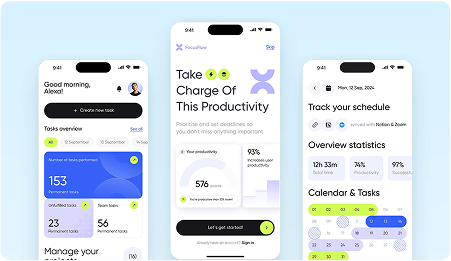
Crafting Video Games: Insights, Roles, and Essential Tips
The world of video games is a big one. Quite literally! And it’s growing year after year. Basically, it offers immersive experiences that attract millions. So, are you fighting a high-octane battle royale? Or are you exploring an emotional narrative in an indie title? There’s just a whole lot of behind-the-scenes action happening.
Thank you for reading this post, don't forget to subscribe!
Game development isn’t just about pushing buttons. In fact, it’s a complex blend of art, tech, and storytelling. Here, countless roles work together to turn an idea into something entertaining. So, do you dream of developing a video game? You gotta know both the creative and technical sides. A dev’s journey might start with the spark of an idea. However, it takes the right mix of skills, tools, and teamwork to bring that idea to life. Eventually, it leads to a product that players can connect with and love. So, let’s get into the tiniest details of game development. Let’s go!
Exploring the Fundamentals of Developing Video Games
Table Of Content
Developing video games is much more than just putting some code together. You don’t get to just call it a day! Instead, it’s a dynamic, creative, and technical process. It blends
- Art
- Technology
- Storytelling
All that into a unified experience. So, at its core, developing a video game is about creating an interactive environment. Something that players can explore, enjoy, and get lost in.
What Do You Need to Know
Knowing the essential tools and coding languages is crucial for an aspiring gaming developer. Basically, many games are created using game engines like
- Unity
- Unreal Engine,
They provide the structure and functionality needed to bring the game to life. These engines use programming languages such as
- C# (in Unity)
- C++ (in Unreal Engine
So, mastering these languages is a good starting point. However, game development also requires a solid know-how of
- design principles
- user experience
- how to make gameplay engaging.
The platform you develop also plays a big part in how you approach the game-building process. Are you developing games for PC? Is it for mobile? Or consoles? Naturally, all have their unique challenges.

For instance, mobile games often need to be optimized for different screen sizes. Also, you need to be careful regarding the battery life. However, console games require designing for a more hardware environment. You also have to consider the genre! A platformer might require mechanics and controls that are different from those of an RPG.
Experts Insight!
All of these factors, like
- Technology
- Platforms
- Genre
These are the building blocks! They’ll help you create an immersive and enjoyable game. So, it’s a constant balancing act between artistry and programming. Here, the story, characters, and visuals come together with the tech behind them.
How Do Gaming Developers Make Video Games?
1. Conceptualization and Idea Development
So, where do video games come from? It all starts with a spark of an idea, a concept. The main roles in game development are
- Developers
- Designers
- Producers
They all huddle together, tossing around ideas. Here, they decide on the kind of game they want to make. A thrilling adventure? A mind-bending puzzle? Or is it gonna be a heart-pounding shooter? Next, it’s time to figure out
- How players will interact with the game
- The story that will unfold
- The look and feel of the game world.
An insight from game dev tips suggests that at this stage, focus on creating unique gameplay elements. Ones that will set their game apart from the rest. Because a strong concept is the cornerstone of a successful game. It’s the foundation upon which everything else is built.
2. Pre-production and Planning
Secondly, pre-production is where the real magic happens. This is where developers lay the foundation for the game. Firstly, they
- sketch out the game’s story
- design the characters
- figure out the technical stuff
So, take it as building a blueprint for a house. The team, including project managers and designers, creates a detailed plan. This roadmap guides the development process. Moreover, it ensures everyone’s on the same page. It’s like a checklist. Because it makes sure every task is completed on time.
During this phase, developers crystallize their vision. They decide on the game’s
- Setting
- Characters that inhabit it
- How players will interact with the world
And this shared vision is crucial for the entire team to align their efforts.
3. Game Design and Prototyping
Here, we start building the core of the game. The developers define the basic rules and features that make the game tick. So, how do you ensure that they work? Test these ideas! Game developing experts create simple prototypes. These let the devs play around with the mechanics. Moreover, by doing this, you can
- tweak the gameplay
- balance the difficulty
- spot any problems early on.
Want some game dev tips? Keep your prototypes lean and mean. Just focus on the fun parts and test them often. This way, you can identify areas for improvement and make your game even better.
4. Art and Asset Creation
Game developers team up with artists to bring games to life. Together, they create the stunning visuals that make games so immersive. From characters to environments, every detail is carefully crafted. The process also requires
- 3D modeling
- Texture work
- Animation
- User interface design
These are all crucial! Roles in game development like Concept artists and animators work hand-in-hand to ensure everything looks amazing. But why? Because the visuals must match the game’s overall style and feel. Furthermore, they need to be optimized for smooth performance.
5. Programming and Coding
Next, programmers, the magicians behind the scenes, start to work! Basically, they know coding languages like
- C++
- Python
- C#
These help to construct the game’s intricate systems and mechanics. They script down things like
- simplest player movement
- complex AI behaviors
So, to master this stage, a gaming developer should prioritize modular code. This makes debugging a breeze. Moreover, it allows the game to grow easily throughout development and testing. Also, teaming with artists and designers is crucial! Why? Because it ensures a cohesive and immersive gaming experience.
6. Sound Design and Music
Sound designers and composers craft sonic landscapes. These are the BGs that transport us to other worlds. So, to create immersive experiences, developers must carefully consider how sound interacts with visuals and gameplay.
For instance, a serene forest should have gentle rustling leaves and chirping birds. However, a bustling city should be filled with honking cars.

Also, sound designers must optimize their work. Because that ensures optimal performance across different platforms. This involves
- balancing sound quality with file size
- processing power
Additionally, dynamic audio systems can elevate gameplay, too. How so? Basically, by reacting to the player’s actions in real time. For instance, footsteps should sound different on grass, gravel, or wood.
7. Game Testing and Debugging
Once you can actually play your game, testing becomes important. Game developers dive deep into playtesting to root out
- Bugs
- Glitches
- Any hiccups in gameplay
Then, QA testers give their two cents on
- Game balance
- Controls
- Difficulty levels
So, here’s some game dev tips! Get a bunch of different testers to give you a wide range of opinions. This will help you create a smooth and bug-free experience before you launch your game. Remember, debugging might take a while! However, it’s a crucial part of developing video games.
So follow these steps and keep key tips in mind. That way, gaming developers can successfully create immersive, enjoyable video games from start to finish.
The Role of Creativity in Developing Video Games
You know, at the heart of every great game is a hefty dose of creativity. Sure, coding and tech skills are critical. But it’s the creative spark that really brings a game to life. So, is it about a gripping storyline? Designing captivating characters? Or are you building a world that feels alive? Creativity is what makes a game stand out from the crowd.
Tell us. What comes to mind when you think about creativity in game development? Of course, it’s a story, and its world-building! These are often the first elements that come to mind. For instance, The Legend of Zelda or The Last of Us. it’s not just about gameplay mechanics. But the rich environments and emotional narratives keep players engaged for hours.
These stories don’t just live in the script. But they’re brought to life through
- Character Design
- Music
- Level Design
It’s all about making the player feel like they’re stepping into a fully realized world.
Collaborative Brainstorming
However, creativity in game development isn’t just for the designers. You also need team brainstorming sessions between different roles in game development. This includes
- Game designers
- Developers
- Artists
This is a huge part of the process. That way, ideas flow freely, and team members spark concepts off each other. This helps adjust and refine them until everything fits together perfectly.
A great example of this creative synergy can be found in games like Minecraft. It’s a title with a simple premise that sparks the player’s imagination. For instance, it was the developers who made the beauty of Minecraft’s creative freedom possible. They designed a game where players could create their own worlds. And that expanded the gameplay beyond the developers’ original vision.
In short, creativity in game development isn’t just about adding cool visual effects or interesting characters. Then? But it’s about shaping an experience that feels fresh, exciting, and interactive.
Essential Tips for Aspiring Game Developers
Ready to start your game development journey? Great! You don’t need a fancy studio or a degree to get started. Basically, with the right tools, practice, and a clear plan, you can begin creating your own video games. So, here are some essential game dev tips for those just starting out:
Start Small
DON’T! Don’t try to build the next Grand Theft Auto right away. Instead, try to begin with small projects like
- basic 2D games
- simple mobile apps
Why? Because these will help you learn the ropes without getting overwhelmed. And as you get more comfortable, you can scale up to more complex projects.

Learn the Tools
Next, get familiar with game engines like
- Unity
- Unreal Engine
Because they are widely used in the industry. Moreover, these platforms offer plenty of tutorials and resources for beginners. So, no! You don’t need to be a coding genius to get started. However, understanding the basics of programming in C# or C++ will make the process smoother.
Join Communities
Also, you need to know that game development isn’t a solitary activity. Instead, there’s a huge community out there ready to support you. So, is it forums that you are making? Social media groups? Or are they just some game jams? Either way, networking with other gaming developers can be incredibly helpful. That way, you’ll find
- Advice
- Feedback
- Potential Collaborators
And that’s the goal, right?
Practice and Iterate
Now, don’t expect your first game to be perfect. The most important thing here is to practice and learn from your mistakes. So, build prototypes, test them, and refine your work. Remember, iteration is key in game development.
Build a Portfolio
Lastly, as you create small games or mods, don’t forget to start building a portfolio that showcases your work. You know, even simple games can demonstrate your skills and creativity. And that makes it easier to land your first job. You can also do a freelance project down the road.
Conclusion: Your Journey in Game Development Begins Now
So, there you have it! The world of game development is exciting, creative, and challenging. Here, both the tech skills and imagination collide. So, are you dreaming of designing worlds? Wanna ace coding mechanics? Or are you creating characters? There’s a place for everyone in this dynamic field.
The journey from developing a video game idea to watching it come to life in the hands of players is long. However, it’s incredibly rewarding. So, are you passionate about creating games? Then, dive in! Use the tips, embrace your creativity, and don’t be afraid to experiment. The game dev tips community is full of opportunities. And who knows? Your first step could be the start of something great.
Get out there, start developing video games, and see where your creativity and skills can take you!
- Fundamentals of Developing Video Games
- Video Game Development Tips
Table Of Content






